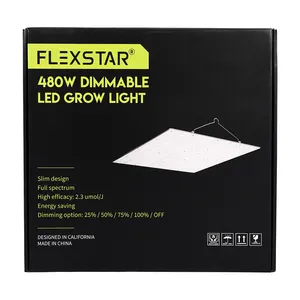Sektörünüzde popüler






Lm301h paneli tam spektrum 480W 240W 120W için ışık kurulu büyümeye yol açtı kapalı bitkiler büyümek
₺1.878,98 - ₺6.499,43
Minimum Sipariş Miktarı: 2 Takım







Yeni dengeli PPFD Led bitki yetiştirme lambaları 1000W orijinal Samsung LM301H Evo UV IR ayrı kontrol 600w büyütücü Led lamba kapalı bitki
₺1.985,08 - ₺7.803,42
Minimum Sipariş Miktarı: 1 Kutu







Fabrika özelleştirilmiş yüksek Anti yansıtıcı kaplamalar sigortalı silika K9 Bk7 güvenlik teknolojisi savunma için cam optik kubbe
₺85,57 - ₺119,79
Minimum Sipariş Miktarı: 500 Adet







Veg bitki led kültür sebze için ışık şeritleri tam spektrum bar büyümek
₺222,47 - ₺472,32
Minimum Sipariş Miktarı: 2 Adet







IP65 kablosuz pil piksel led tüp 360 tüp açık Dj sahne ışıkları parti tüp
₺4.620,45 - ₺4.723,12
Minimum Sipariş Miktarı: 4 Adet
Parça başına nakliye: ₺14.230,28







Deruikeer DK10A tam spektrum 800W ışık büyümeye yol açtı Apollo 10 Led bitki yetiştirme lambaları
Gönderime Hazır
₺12.492,31 - ₺13.176,82
Minimum Sipariş Miktarı: 1 Birim
Parça başına nakliye: ₺1.624,00

1500 w apollo 20 tam spektrum ışıklar büyümeye yol açtı
₺1.026,77 - ₺3.388,33
Minimum Sipariş Miktarı: 1 Birim






400w led apollo 8 tam spektrumlu led ışık büyümeye yol açtı
₺5.544,54 - ₺5.612,99
Minimum Sipariş Miktarı: 1 Adet






Yüksek Kaliteli Sungrow SMD Çip Apollo LED bitki yetiştirme lambaları Tam Spektrum 35 W 40 W 60 W
₺725,59 - ₺794,04
Minimum Sipariş Miktarı: 5 Adet






Çin toptancı kapalı yetiştirme hidroponik sistemleri tam spektrum 600 W ışık büyümeye yol açtı Apollo 16
₺8.898,63 - ₺9.583,14
Minimum Sipariş Miktarı: 1 Adet






Apollo led bitki yetiştirme lambaları tam spektrum SLPT01 400W kapalı cfl bitki yetiştirme lambaları sera için
₺3.226,79
Minimum Sipariş Miktarı: 10 Adet



Epileds Apollo 6 COB 1200 w led ışıklar tam spektrum büyümeye
₺4.340,83 - ₺4.391,82
Minimum Sipariş Miktarı: 1 Adet






Bar T8 tam spektrum 48 inç Samsung 301h Apollo Mammoths ışık büyümeye yol açtı
₺3.354,10 - ₺10.233,43
Minimum Sipariş Miktarı: 2 Adet






Apollo Bahçecilik GL60 LED Tam Spektrum 180 W Bitki Yetiştirme için Işık Büyümeye Yol Açtı
Gönderime Hazır
₺958,32 - ₺1.197,90
Minimum Sipariş Miktarı: 1 Adet
Parça başına nakliye: ₺1.393,33






Toptan tam spektrum 270LED 3 Watt apollo 6 sera 3gp kral ışık büyümeye yol açtı aeroponik büyüyen sistemler için
₺3.867,49 - ₺4.962,70
Minimum Sipariş Miktarı: 1 Adet






Bahçe bitkileri çözümü apollo masa üstü tam spektrum 385nm 730nm kapalı ışık büyüyen 600 watt bitki lambaları Samsung Lm301h
Gönderime Hazır
₺15.093,45 - ₺15.586,30
Minimum Sipariş Miktarı: 1 Adet
Parça başına nakliye: ₺1.624,00






Apollo 16 bitki büyümek led ışık 480 w 500 w KıRMıZı MAVI 630NM: 460NM 160: 80 led ışık büyümek tam spektrum depo kapalı dikim Için
₺9.195,03 - ₺10.002,07
Minimum Sipariş Miktarı: 2 Adet






En iyi satış Led bitki büyümek ışık şeridi büyümek lamba tam spektrum 5V Tripod ON/Off 4/8/12 saat zamanlayıcı kapalı bitkiler büyüme için
Gönderime Hazır
₺733,46 - ₺831,34
Minimum Sipariş Miktarı: 1 Adet
Parça başına nakliye: ₺648,24





Ticari bahçecilik büyüyen LED ışık büyümek ışık dikey tarım ışık tam spektrum
₺1.197,90
Minimum Sipariş Miktarı: 2 Adet






Amazon HotSale 180w yüksek verimlilik tam spektrumlu LED kapalı bitkiler için ışık hızlı soğutma IP65 su geçirmez bitki yetiştirme lambaları büyümek
Gönderime Hazır
₺3.248,00
Minimum Sipariş Miktarı: 1 Adet
Parça başına nakliye: ₺1.190,37






Etl Dlc 2.8 Umol/j Epistar 6/8 Bar Lm281b Lm301b Lm301h 660nm büyümek ışık katlanabilir Bar 800w 600w tam spektrumlu Led bitki yetiştirme lambaları
₺5.065,38 - ₺19.132,06
Minimum Sipariş Miktarı: 1 Adet






Shenzhen teknoloji sera kapalı bitki ışık kısılabilir 600W 220V tam spektrum ile ışık büyümeye yol açtı
Gönderime Hazır
₺8.279,15 - ₺8.525,58
Minimum Sipariş Miktarı: 1 Adet
Parça başına nakliye: ₺662,61





kapalı kitleri büyümek güneş enerjisi 3gp kral led ışık tam spektrum büyümeye 337w ışıklar büyümeye yol açtı
₺8.077,22
Minimum Sipariş Miktarı: 50 Adet






Boya İle 1000w 1200w tam spektrum LM301B LM301H EVO sebze bloom booster çiçek bitki büyüme güneş bar lamba pro ışık büyümeye yol açtı
₺1.266,35 - ₺8.043,00
Minimum Sipariş Miktarı: 2 Adet
Parça başına nakliye: ₺1.971,05






Sıcak satış tarım aydınlatma bitki büyüme ampuller özel spektrum E27 15W Led bitki yetiştirme lambaları açık ve seralar bitkiler için
₺56,48 - ₺87,28
Minimum Sipariş Miktarı: 100 Adet






UV UVB kısılabilir büyümek 2020 en çok satan ışık LED büyümek ışık dikey tarım ışık tam spektrum 640W Samsung aydınlık otomatik vücut
₺167,03 - ₺222,47
Minimum Sipariş Miktarı: 30 Adet






270W LED büyümek ışık tam spektrum büyümek iç mekan lambası bitkiler, Hydroponic fide sebze ve çiçeklenme için güneş ışığı bitki ışık
₺3.388,33 - ₺3.696,36
Minimum Sipariş Miktarı: 300 Adet
Parça başına nakliye: ₺303,59






600/1200/1500mm meyve meaty ev tarım IP65 T8 bitki tüp su geçirmez tam spektrumlu led bitki yetiştirme lambaları
₺133,83 - ₺297,77
Minimum Sipariş Miktarı: 100 Adet






Hydroponics Samsung 720 watt LED büyümek ışık sera tam spektrum 720 w katlanabilir Bar LED ışık büyümek
₺2.669,59
Minimum Sipariş Miktarı: 2 Adet
Parça başına nakliye: ₺888,84






Profesyonel bitki lambası tam spektrum kapalı bitkiler küçük büyüyen çadır ışık büyümeye yol açtı
₺112,95 - ₺127,32
Minimum Sipariş Miktarı: 2 Adet






OEM toptan bitki yetiştirme lambaları Bar 800W 8 Bar Lm301B Led tam spektrum Lm301H LM281B UV IR 3 yollu Dimmin örümcek işık büyümek
₺4.278,19 - ₺22.246,58
Minimum Sipariş Miktarı: 2 Adet






2021 Dlc toptan 320W 640W 900w 1000W katlanabilir tam spektrumlu LED büyümek Panel AYDINLATMA samsung Lm301b Osram kırmızı kapalı çiftlik
₺12.458,09
Minimum Sipariş Miktarı: 1 Adet






Lineer modül Led ışık büyümek PCB Zhaga standart 112LED alüminyum 80 ışık kaynağı alüminyum kapalı Apollo bahçecilik 50W -40 - 85
₺1.813,96 - ₺2.053,53
Minimum Sipariş Miktarı: 1000 Adet
Parça başına nakliye: ₺78,72






540w yüksek kalite ve lümen tam spektrum Apollo 6 led işık büyümek
Gönderime Hazır
₺5.784,11 - ₺6.468,62
Minimum Sipariş Miktarı: 1 Adet
Parça başına nakliye: ₺956,27






CTLite 320w tam spektrumlu LED büyümek ışık abd stok DLC tıbbi kapalı bitki dim Bar ışıklı lamba Sosen LED sürücü
₺4.552,00 - ₺5.065,38
Minimum Sipariş Miktarı: 2 Adet






DC12V LED bitki büyütme lambaları 5050 LED şerit kırmızı mavi topraksız Apollo Phyto büyüyen lambalar sera
Gönderime Hazır
₺33,55 - ₺33,89
Minimum Sipariş Miktarı: 100 Metre
Parça başına nakliye: ₺23,62






Shenzhen ebay iyi satılanlar suda büyüyen ışık sistemi tam spektrum 72W apollo 8 ışıklar büyümeye yol açtı/hidroponik
₺2.156,21 - ₺2.738,04
Minimum Sipariş Miktarı: 1 Adet






50% indirim lux en iyi kalite 720w led bitki yetiştirme lambaları daha iyi apollo 12 led büyümek ışık
Gönderime Hazır
₺11.294,42 - ₺21.904,32
Minimum Sipariş Miktarı: 2 Adet
Parça başına nakliye: ₺6.310,50






Apollo büyümek lambalar Par değeri yüksek PPFD Lens ile bitki yetiştirme lambaları 1200W sera sebze tam spektrum aydınlatma
₺19.953,47
Minimum Sipariş Miktarı: 1 Adet





tam spektrum 100w hafif büyümeye led apollo 12 ışığı kırmızı büyümeye led
₺34,23 - ₺1.711,28
Minimum Sipariş Miktarı: 1 Adet
En iyi kategoriler
apollo tam spektrum hakkında
İster nakliye, isterse depolama veya üretim sürecinin bir parçası olsun, hakkınız olduğundan emin olmanız gerekir. apollo tam spektrum. Alibaba.com, geniş bir seçim ile tüm şekil, boyut ve malzemelerde sunulan seçeneklere sahiptir. Yağ ve kimyasallar için tasarlanmış olanları bulabilirsiniz. Yiyecekleri işlemek için özel olarak işlenmiş türleri de vardır. Çok fazla uygulama olduğu için çok geniş bir alanınız var. İhtiyaçlarınızı karşılayacak apollo tam spektrum seçim.
En yaygın olanı. apollo tam spektrum mevcut boyuta 55 galonluk varil denir. Genellikle mavi renkte gelirler ve kimyasalları depolamak için çok kullanışlıdırlar. İlginç bir şekilde, 55 galonluk davulların hepsi aynı değil. Alibaba.com'da, bazılarını çelikten, bazılarını ise plastikten bulabilirsiniz. Hepsi yüksek kalitelidir ancak farklı özelliklere sahiptir.
Herkesin 55 galonluk bir tambura ihtiyacı yoktur. Bu yüzden harika bulacaksın. apollo tam spektrum seçimi farklı boyutlarda mevcuttur. Birçok satıcı daha küçük boyutlarda variller sunar. 18 litre kadar küçük olabilirler. Bu çeşitli boyutlar, boya ürünlerinin dağıtımı için modadır. Ayrıca önceden basılmış olarak da yaptırabilirsiniz ve bunlar metal veya plastik olabilir.
Doğru olanı arıyorsanız. apollo tam spektrum, daha sonra Alibaba.com alışveriş yapılacak yerdir. Mevcut seçenekler, ihtiyacınız olan boyutu, istediğiniz malzemeyi ve miktarınızı seçmenize olanak tanır. Uygulama ne olursa olsun, ihtiyaçlarınıza uygun bir şey bulabilirsiniz.
En yaygın olanı. apollo tam spektrum mevcut boyuta 55 galonluk varil denir. Genellikle mavi renkte gelirler ve kimyasalları depolamak için çok kullanışlıdırlar. İlginç bir şekilde, 55 galonluk davulların hepsi aynı değil. Alibaba.com'da, bazılarını çelikten, bazılarını ise plastikten bulabilirsiniz. Hepsi yüksek kalitelidir ancak farklı özelliklere sahiptir.
Herkesin 55 galonluk bir tambura ihtiyacı yoktur. Bu yüzden harika bulacaksın. apollo tam spektrum seçimi farklı boyutlarda mevcuttur. Birçok satıcı daha küçük boyutlarda variller sunar. 18 litre kadar küçük olabilirler. Bu çeşitli boyutlar, boya ürünlerinin dağıtımı için modadır. Ayrıca önceden basılmış olarak da yaptırabilirsiniz ve bunlar metal veya plastik olabilir.
Doğru olanı arıyorsanız. apollo tam spektrum, daha sonra Alibaba.com alışveriş yapılacak yerdir. Mevcut seçenekler, ihtiyacınız olan boyutu, istediğiniz malzemeyi ve miktarınızı seçmenize olanak tanır. Uygulama ne olursa olsun, ihtiyaçlarınıza uygun bir şey bulabilirsiniz.






















